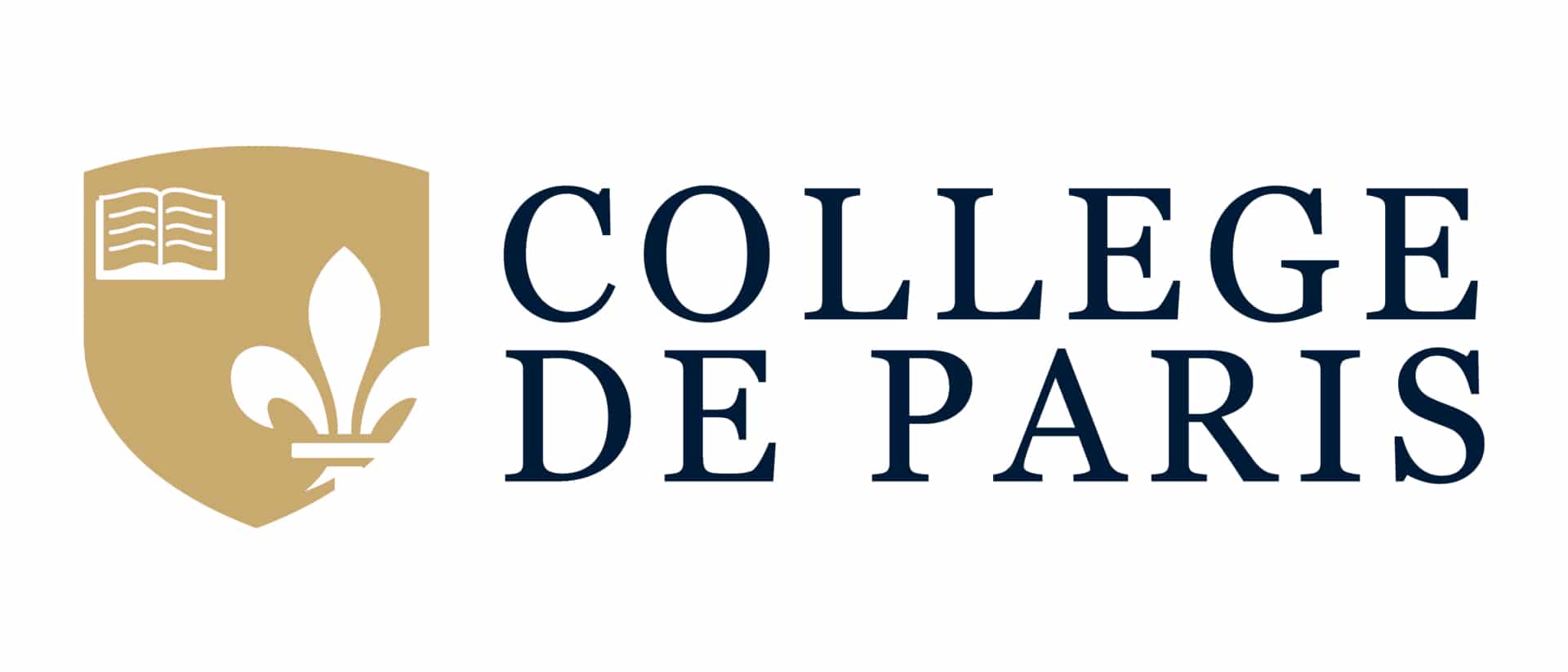
Study in Europe: Top Universities, Courses, Scholarships & More
About Europe
Are you ready for an adventure of a lifetime? Education in Europe is not just about obtaining a degree, but it's a journey of self-discovery, cultural immersion, and personal growth. Imagine walking through the historic streets of Paris, tasting traditional cuisine in Rome, or exploring the beautiful scenery of the Swiss Alps. Europe offers a plethora of experiences that will leave a lasting impression on your life.
Moreover, Europe has some of the most prestigious universities in the world, providing a high-quality education and access to cutting-edge research facilities. You'll be surrounded by like-minded individuals from around the world, fostering a diverse and dynamic learning environment.
Study stay in Europe offers opportunities for personal and professional development. Many universities offer internships, co-op programs, and research opportunities that can help kickstart your career. You'll also gain valuable skills such as critical thinking, problem-solving, and adaptability, which are highly sought after by employers in today's globalized workforce.
But it's not just about academics. Europe is home to a vibrant social scene with a rich nightlife, music festivals, and sporting events. You'll have the opportunity to meet people from different backgrounds and cultures, and make lasting friendships that will span across the globe.
Hence, studying in Europe is more than just obtaining a degree. It's an opportunity to broaden your horizons, experience new cultures, and create memories that will last a lifetime. So, pack your bags and get ready for an adventure of a lifetime!
Moreover, Europe has some of the most prestigious universities in the world, providing a high-quality education and access to cutting-edge research facilities. You'll be surrounded by like-minded individuals from around the world, fostering a diverse and dynamic learning environment.
Study stay in Europe offers opportunities for personal and professional development. Many universities offer internships, co-op programs, and research opportunities that can help kickstart your career. You'll also gain valuable skills such as critical thinking, problem-solving, and adaptability, which are highly sought after by employers in today's globalized workforce.
But it's not just about academics. Europe is home to a vibrant social scene with a rich nightlife, music festivals, and sporting events. You'll have the opportunity to meet people from different backgrounds and cultures, and make lasting friendships that will span across the globe.
Hence, studying in Europe is more than just obtaining a degree. It's an opportunity to broaden your horizons, experience new cultures, and create memories that will last a lifetime. So, pack your bags and get ready for an adventure of a lifetime!
Advantages of Studying in Europe
Studying in Europe gives the opportunity and the advantage to network with International professionals and build a global network by providing students with internships, job opportunities and real world experience which adds towards students building their personal and professional growth.
High-Quality Education
Europe is home to some of the world's oldest and most prestigious universities, offering excellent academic programs and research opportunities.
Learn More
Multicultural Environment
With its diverse student population, studying in Europe provides an opportunity to experience different cultures, languages, and perspectives.
Learn More
Affordable Education
Compared to other study destinations such as the USA and Australia, Europe offers affordable education, with many countries offering free or low-cost tuition fees.
Learn More
Travel Opportunities
Europe is known for its rich history, diverse cultures, and breathtaking landscapes, making it an ideal destination for students who want to explore and travel while studying.
Learn More
Career Opportunities
European universities offer excellent career services and job placement opportunities, helping students to build a strong professional network and kickstart their careers.
Learn More
Language Opportunities
Europe is home to many languages, making it an excellent destination for students looking to learn a new language or improve their language skills. Many universities offer language courses as part of their academic programs.
Learn More
Top Universities To Study At In Europe
Universities in Europe offer a top-notch educational experience to students who are looking for quality education in a vibrant and multicultural atmosphere.

Dalarna University
Dalarna University College (Swedish: Högskolan Dalarna) is a public university college (högskola) located in Falun and Borlänge, in Dalarna County, Sweden. Dalarna University College is one of Sweden’s more recent institutions of higher education, established in 1977. It is situated in Dalarna, 200 kilometres north-west of the capital Stockholm.
Know More

College de Paris
The Collège de Paris is an accredited company in mission whose statutory reason is to make excellence accessible through a community of schools. By offering intra-baccalaureate and post-baccalaureate training up to Bac+5 in all fields of education and throughout the national territory.
Know More

EU Business School
EU Business School is a private institution with campuses in various countries across Europe. It is also a member of OMNES Education Group since 2022
Know More
Top Courses To Study in Europe
These courses offer a diverse and dynamic system that emphasizes academic excellence, research and innovation. With a focus on quality, inclusivity and accessibility. These courses arm students with a valuable skill set for their future careers.
Architecture
Environmental Science
Data Science
Law
International Relations
Engineering
Marketing
Finance
Culinary Arts
Foreign Languages
Study Destinations in Europe
Popular Study Destinations in Europe
Intakes Available in Europe
These intakes allow for greater flexibility in scheduling various things like Europe student visas and offer students a wide range of programs and courses to choose from.
Fall Intake (4 months (September to December))
The fall intake in Europe typically starts in September or October and is the most common time to begin studies. This intake allows students to align their academic year with the European academic calendar, which runs from September to June. The fall intake offers a wider range of programs and courses, and students have more time to settle into their new environment and get involved in extracurricular activities.
Learn More
Spring Intake (4 months (January to April))
The spring intake in Europe usually starts in January or February and is less common than the fall intake. It's a great option for students who may have missed the fall intake or need more time to prepare for their studies. The spring intake may have fewer courses and programs available, but it offers a unique opportunity to start studies in the middle of the academic year and finish earlier.
Learn More
Summer Intake (4 months (May to August))
The summer intake in Europe typically starts in May or June and is the least common intake. It's mostly offered for specialized programs such as language courses, summer schools, and certain certificate courses. The summer intake is a great opportunity for students who want to study in Europe during their summer break or take advantage of the good weather and travel opportunities in Europe.
Learn More
Exclusive Services by Uscholars
Our seasoned abroad education consultants in Pune provide valuable guidance at every step. Enjoy a smooth and stress-free application journey with Uscholars!

University & Course Selection
We analyse your student profile and provide tailored course recommendations according to your career interests. Take advantage of our partnerships with top universities worldwide.
Know More
College Application Support
Your admissions counsellor will personally oversee and submit your university applications. Our overseas education consultants Pune help you refine your portfolio and organise your documents.
Know More
Education Loans
Uscholars connects you with the most reputed banks and loan providers. Our foreign education consultants in Pune help you secure the best interest rates and repayment plans.
Know More
Student Visa Application & Preparation
Uscholars conducts mock visa interviews and offers tips to avoid student visa rejections. We provide a detailed document checklist to help you submit your visa application.
Know More
Securing Your Student Accommodation
Uscholars partners with premium student accommodation providers to ensure students find the perfect room abroad.
Know More
Comprehensive Student Insurance Plans
Our extensive resources include collaborations with premier student insurance providers. Your dedicated study abroad consultant will help you sign up for the best health insurance plan.
Know More
Apply for Scholarships
Our Pune study abroad agents help you apply for scholarships online. Don’t worry about deadlines and scholarship forms, we handle all the paperwork.
Know More
Student Referral Program
Refer your friends to Pune's most trusted study abroad consultants to access exciting perks and cashback offers. Secure exclusive rewards and discounts with every referral!
Know More
Student Profile Assessment
Our overseas education consultants Pune conduct personalised career counselling sessions. Your study abroad advisor builds a customised student profile based on your career goals and interests.
Know More
Student Bank Accounts
Your overseas study consultant Pune will also help you set up an international student bank account. Students can access exclusive offers and services with our foreign banking partners.
Know More
Forex Services
Our integrated support also includes foreign exchange and currency conversion services. Your overseas consultants in Pune connect you with streamlined forex platforms for low exchange rates.
Know More
Pre-Departure Preparation
Uscholars’ comprehensive support includes flight bookings and pre-departure briefings. Your education counsellor will ensure you experience a smooth transition to your university abroad.
Know More
Job Placements Abroad
Your study abroad counsellor in Pune continues to assist you after graduation. Uscholars provides tailored career placements for graduate students exploring the international job market.
Know MoreReady to Start Your Study Abroad Journey?
Join thousands of students who have successfully achieved their dreams with our expert guidance
5000+
Students Helped
99%
Success Rate
15+
Years Experience
100% Free Counselling
Expert Guidance
End-to-End Support
Why Study in Europe
Europe is said to have a welcoming culture for international students and proven excellence in career opportunities.
01
Career Opportunities
Europe is home to many multinational companies and offers a variety of internship and job opportunities to international students.
02
Innovative Research
Many European universities are at the forefront of research in various fields, providing students with the opportunity to work with top researchers and access cutting-edge facilities.
03
Student-Friendly Environment
Europe is known for its welcoming and student-friendly environment, with many universities offering support services such as career counseling, housing assistance, and language classes.

Frequently Asked Questions
Get answers to common questions about the study abroad application process.
The academic requirements vary depending on the country and the university. Usually, students need to provide proof of their secondary education or previous higher education. Some universities also require English test results and letters of recommendation.
The cost of studying in Europe varies by country and university. Tuition fees can range from free (in some European countries) to tens of thousands of euros per year. Students should also plan for accommodation, living expenses, health insurance and visa fees.
Language requirements vary by country and university. Some universities require students to be fluent in the language of instruction, while others offer language courses for non-native speakers. Many European universities use English as the language of instruction, but it's important to check the language requirements of your chosen university and programme.
International students are allowed to work part-time during their studies in some European countries. However, there may be restrictions on the number of hours they can work and the types of jobs they can do. It's important to check the regulations of the country where you plan to study.
Visa requirements depend on the country you want to study in. You'll need either a student visa, a residence permit or a work permit. To get a student visa, students usually need to show a letter of admission from an accredited university, proof of financial resources and health insurance. It's important that you're aware of the visa requirements of the country you want to study in and start the visa application process early for your planned departure.
Studying in Europe offers you a quality education, exposure to different cultures and the opportunity to learn new languages. In addition, many European universities offer research opportunities and access to state-of-the-art technology and facilities. Studying in Europe can also improve your job prospects, as many European countries have strong economies and global labour markets.
In some European countries, it is possible to study for free or with very low tuition fees. These countries include Germany, Norway, Finland, Sweden, and Denmark. However, keep in mind that even if tuition fees are free or low, you will still need to cover your living expenses such as accommodation, food, and transportation. Additionally, some universities may charge administrative fees or require you to purchase health insurance. It's important to research the specific country and university you are interested in to determine the actual costs involved. Finally, note that free education in Europe may be limited to EU/EEA citizens or residents, so it's important to check the eligibility requirements.
Yes, there are many scholarships available for international students who want to study in Europe. Some scholarships are offered by governments, while others are offered by universities, non-profit organisations, or private companies. Here are a few examples of scholarships for international students in Europe:
- Erasmus Mundus Joint Master Degrees: These scholarships are offered by the European Union and support master's degree programs in various fields. They cover tuition fees, travel expenses, and a monthly living allowance.
- Fulbright Program: This program offers scholarships for students from over 160 countries to study in the United States or Europe. It covers tuition fees, travel expenses, and a monthly living allowance.
- DAAD Scholarships: The German Academic Exchange Service offers a range of scholarships for international students to study in Germany. These scholarships cover tuition fees, travel expenses, and a monthly living allowance.
- Eiffel Scholarships: These scholarships are offered by the French government and support master's and doctoral programs in various fields. They cover tuition fees, travel expenses, and a monthly living allowance.
- Swedish Institute Scholarships: These scholarships support master's degree programs in Sweden and cover tuition fees, travel expenses, and a monthly living allowance.
These are just a few examples of scholarships available for international students in Europe. It's important to research the specific country and university you are interested in to determine the available funding opportunities.
As an international student in Europe, you can expect to encounter a wide range of experiences and challenges. You may need to adjust to a new academic system, culture, and language, and may face homesickness or cultural shock. However, you will also have the opportunity to meet new people, learn new skills, and broaden your perspectives. Universities in Europe often offer support services for international students, such as orientation programs, language courses, and counselling services.
Let’s plan your study abroad journey
Speak with our experts
Study Abroad with Uscholars and avail One way Flight Ticket and Free TOEFL / IELTS Training. T&Cs apply*
- 99% Acceptance Rate
- Free Advice
- Experienced Counsellors
- 600+ Partner Universities
Start your dream journey now
Complete the form and our counsellors will get in touch within one business day.








